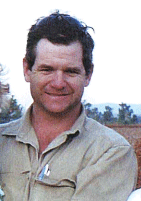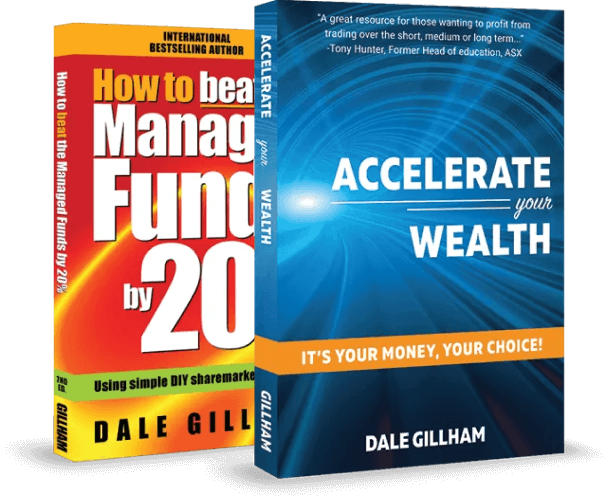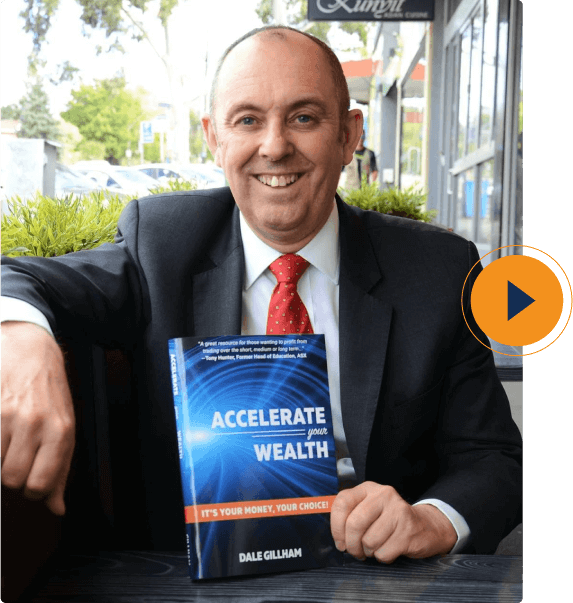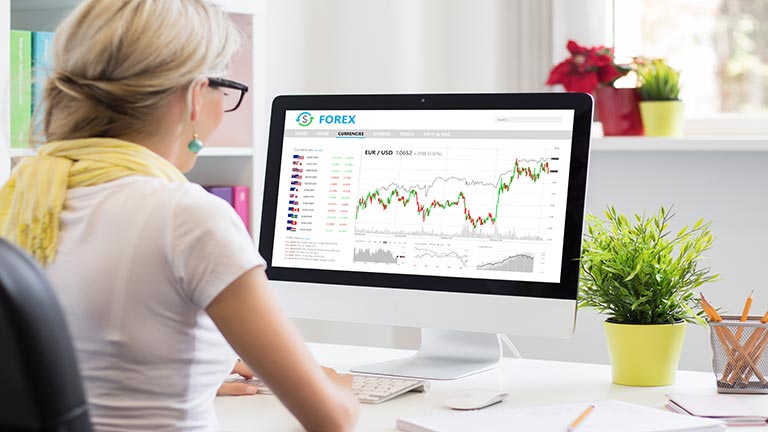Wealth Within Case Studies
John Alexander
John Alexander shares a review of his experience before and after completing the Diploma with Wealth Within. According to John, he was not comfortable blindly following someone else's advice and he spent quite a bit of time looking for quality trading education, which he found in Wealth Within.
John is a 36-year-old farmer who resides outside of Jandowae in Queensland, Australia. A mechanical engineer by trade, John worked for a bulk grain handler, after which he returned to running a farm business. John has five years of experience in commodities trading and primarily trades the crops he grows including wheat, barley, chickpeas, sorghum and mung beans.

How and when did you first become interested in the markets?
I was first interested in markets very early in life due to growing up on the farm. Mostly the interest came from talking to my grandmother and uncle who had a number of ASX shares. My interest was also cultivated with the cut and thrust of soft commodity prices, which, being on a farm, had such a large bearing on our livelihoods.
And then what happened?
From this early introduction into the markets I would regularly check the ASX to get prices on shares, including a couple that had been put aside for me. Commodity prices fascinated me most and anytime I was home there would always be discussion about what they were doing, whether it was profitable, and how we would enter the market either prior to or after harvest with our grown tonnes.
How have you been able to learn and to educate yourself about the markets?
Coming from a farming background it was mostly listening to others and then working things out myself. Initially my education about the share market came from owning shares, as I realized very early on that I wouldn’t be able to have a lot of money if I continued working as a farmhand. This lead to me leveraging through the farm (with my father’s permission!) to buy shares, and I started building my portfolio with advice from a local broker.
Not being comfortable with following blindly someone else’s advice, I spent some time looking for trading education and techniques that appealed to my technical senses. From this I found Dale Gillham’s book How to Beat the Managed Funds by 20%, saw him present at a seminar nearby and I found the course was Farmbis accredited so I signed up. Since then I have completed Wealth Within’s Diploma of Share Trading and Investment, and now I’m half way through their Advanced Trading Strategies Course.
With the soft commodity crops I learnt from the ground up. Simply by knowing the cost of production, estimating the amount of production and what marketing strategies you could safely use would mean that you wouldn’t risk too much capital (and knowing your customer!). I have been to some short courses, however, the real education you need in this area is a degree in either agribusiness or experience working with a trading company or a bank with an agribusiness side. Luckily, using the strategies, tools and charting program from Wealth Within’s Diploma of Share Trading and Investment and the Advanced Course I am now able to follow the main soft commodity prices with a lot more confidence.
Did you make mistakes when first starting out?
Yes. I went through the joy and anguish of having Babcock & Brown, ABC Learning and OZ Minerals shares. I learnt how easy it is to believe the news from the market but not see the true emotion of the stock. This is where being able to read a chart and factor in the price history makes a huge difference as you get to see what the stock is doing and are able to work out what it’s likely to do in future. I also learnt that not having buying or selling plans with my initial share portfolio is what made the losses from these stocks painful.
With my farming contracts, apart from sending grain with weevils, my worst loss would have come from having a crop failure and being unable to meet my contract. Production risk is an unavoidable hazard of farming. However, just as I need a plan to manage risk with trading shares or commodity futures, I need to know how to manage my crops, and managing production risk well is a measure of your farming practices.
Would you define yourself as a discretionary trader, a mechanical trader or a combination of both?
I would suggest more discretionary than mechanical, especially with farming as there are so many externalities. With no long-term ex-farm data to chart grain prices here in Australia I need some understanding of why the price is doing what it is doing, and this is where the wheat spot chart really helps. However, the price shown on the wheat chart is not what the farmer gets. There are so many factors involved in determining what I will get at the gate as compared to the prices traded on the Chicago Board of Trade (CBOT). So in a sense, I would say it’s more complex to determine what I will get for my crops than trading on the CBOT.
With regards to ASX trading I have been more discretionary, however, with the knowledge I now have from the course I am building a reasonably mechanical system so there is little time needed to manage trades and as a result I can do this weekly.
Who have been some of your mentors and role models? What impact have these people made on you personally as well as on your trading style?
Funnily enough, I have no real mentors for my share trading as yet because I intend to complete the course and finalize my plan for what I want to achieve going forward before I make use of the trading support provided by Wealth Within. I talk to a lot of people about what they do and how they go. After attending the Wealth Within ‘Art of Trading’ workshop and seeing their technical analytical skills, I would certainly view Dale Gillham and Janine Cox as role models.
As for the farming side, a number of my neighbours are very good farmers and I talk to them regularly. One of these, Noel Griffiths, I would consider to be the shrewdest physical marketer I know and he is usually very happy to talk to me. Talking to my neighbours gives me a good picture not only what they think about their crops but also any other domestic issues that are about. It is surprising how much impact domestic issues will have on determining farm gate prices, despite the price set on the Chicago Board of Trade and other exchanges.
Can you give us a brief overview of your trading style?
I’m not sure whether I have a style yet. I’m still learning my techniques and developing my trading plan, especially in relation to shares. However, I am working on having two distinct styles, one for physical farm production and another for investment purposes, such as trading futures contracts and shares.
With the shares I intend to start small and have only 4 to 5 stocks in my portfolio at any one time as it will be less to focus on, with view to get it to 8 to 12 stocks as I have been taught in the course.
Due to the nature of farming the first style is very involved and can be a day-to-day prospect, especially with price goals in mind for the crops. The other will be more a mechanical process, where entry and exit positions can be determined over a weekend and be left alone until the following weekend so that I can get on with farming. In saying this, both of these styles will be driven by the goals my wife and I have.
Is there any one trade (win or loss) that had a profound effect on your development as a trader? If so, what did you learn from the trade?
The one trade that took me down my current path of gaining trading education would be selling ABC Learning which I did whilst reading part of Dale Gillham’s book. I knew the price had been dropping, however, I noticed a small peak very close to my buying price. As per the techniques taught in Dale’s book, I followed what he said and decided to print out a chart to work out where ABC was trading. I noticed it was trading very close to the downtrend line so I decided to sell, and see if my theory about the downtrend was correct. By pure chance (or was it?) I sold at a peak and from there I saw the trend accelerate downwards. From that moment on I decided that this was definitely a path worth taking.
Can you tell us about your best and worst trades?
Firstly, from the farming perspective it is hard to determine a definite best and worst trade due to all the other factors that have to be considered and managed prior to and after making a decision. Also it would take more than a page to describe them. Briefly, selling sorghum for $300/t ex-farm from my first crop was the best, selling good sorghum this year at $165/t ex-farm was my worst.
With my share trading, I would consider my worst to be ZFX/OZL which I bought at $12.60 and sold at $1.00. Babcock and Brown was not too far behind in the amount lost, however, I did get out well before they finished. I learnt why ‘buy and hold’ is not the way to go and how costly it can be without the right knowledge.
My most satisfying trades were when I decided to exit my ASX stocks altogether, as I wasn’t able to give them enough time to manage them properly. This was in May 2010, and I haven’t traded with ASX shares since. I made a very good profit on them and the market has moved largely sideways ever since. Knowing I was able to do this, and not have a meltdown, has allowed me to become comfortable with the knowledge that if it gets too much I can withdraw and trade another day.
Would you classify yourself as a short-term or a long-term trader? What advice would you offer to people getting started as traders on the relative merits or otherwise of each?
I classify myself as a medium to long-term trader. I have very long term goals both personally and within the business. In saying this, with farming the decision to trade can be made on a day-to-day basis with the best information you have at hand. It becomes a management decision as opposed to a pure trading decision. It is also a personal choice due to the time I have available to trade, with family, business and personal commitments all taking up time.
The best advice I could give would be to get an education and to do what you are comfortable with in relation to your trading so that you sleep at night. I prefer to control my own destiny so I chose to invest in myself.
What markets do you trade and which markets do you prefer? Do you have a favourite, and why?
At the moment I am only selling my physical harvest. In doing this I am continually reviewing Wheat Spot and Corn Spot markets on the CBOT.
Being on Twitter, a group of farmers have taken a dry run at trading 1000t of physical wheat by using any marketing tool so long as it auditable. It’s a bit of fun to compare how well we pick the price.
Recently, after having studied the WSpot chart using everything I know I sent a tweet saying I believed the market would find resistance at around 948.5 as my analysis showed this level was strong in terms of previously met resistance and support. The market got to 947.3 and then it pulled back to trade between 50% and 61.8% retracement (this is part of price analysis I learnt in the course and is typical with some retracements) of the previous run from the low it made after the all time high. Seeing this was exciting!
Unfortunately I have to sell the wheat in the game in AUD which means the estimate I make on the spot for the peak won’t fall exactly at some of these peaks in the price we see at our front door. Right now I believe the WSpot is consolidating and will make another run to its all time high. The reason behind this is that wheat is a bellwether for global cropping and food security. What I mean is that it is a good indicator of global food management and government intervention, and the WSpot chart has history that I can use to determine the price trend.
What makes your trading style different from others? What sets you apart from other traders?
My style would be different due to having the mix of necessary trading to make a living from farming, as well as trading for investment. With the crop trading, I’m combining overseas markets, using currency changes and local factors to get a price, which then has to better my total cost of production for the farm. Then having to change styles to trade non-farming stocks or theoretical tonnages, and ensuring these trades are made without having to spend too much time and emotion so as not to take away from our core business.
Do you have a favourite trading rule?
I guess it would be trend lines, as they stand out very quickly and easily and got me into technical analysis. However, I am back testing reversing signals to retracement/extension levels with soft commodities in mind and I like what I see, however, this approach needs a little more attention than trend lines.
Ed Seykota says, “Everybody gets what they want from the markets.” What do you ‘get’ from the markets?
I get confidence in farming from being able to read the markets, which is where the monthly or longer term charts are good. As price is such an important part of the farming business, reading the markets gives me confidence that it is either profitable in the long term or not. Right now, it is.
How has trading affected your lifestyle?
Trading crops is how I make a living and it gives me money to invest.
What books, seminars and courses have you read or attended and which would you recommend?
As mentioned before I have read Dale Gillham’s ‘How To Beat The Managed Funds By 20%’, attended two Wealth Within ‘Art of Trading’ workshops, completed Wealth Within’s Diploma of Share Trading and Investment and I’m midway through the Advance Trading Strategies Course.
Dale’s book is an excellent first step into trading and technical analysis and I cannot complain about the courses and workshops. They are run well and the courses are definitely challenging but very logical. For me to fly to Melbourne twice for their Art of Trading Workshop is a measure of the praise I give to this organization.
What does the future hold for you?
If we’re able to get some reasonable farm income over the next few years and I finish the Advanced Course, my plan is to get back into stocks and start trading soft commodities in the futures market. These portfolios would be very targeted especially when trading on the agricultural exchanges, and would be set in such a way that any entry and exit points could be entered on the weekend, and forgotten about until the following weekend. Together with our plans for growth of the farming operation, we intend on ensuring that we will be able to retire when we decide and to have our assets generating wealth for us.
Insights From Our Learning Centre


Learn the concepts as to how you can accelerate your wealth using simple DIY investment strategies that will enable you to take control of your investments. Dale Gillham, bestselling author, shows you how to invest with confidence to achieve very profitable returns.
Browse BooksOr Browse By Topic
5 Stars
Years in business delivering high-quality education
of students rate the quality of education as excellent or very good
of students recommend Wealth Within



